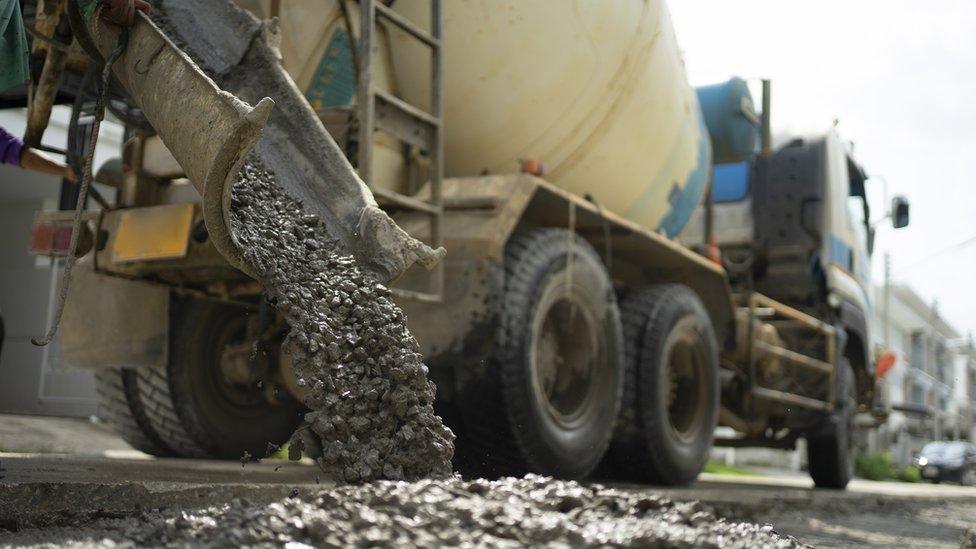Red diesel: Many companies will pay thousands more under new restrictions
- Published
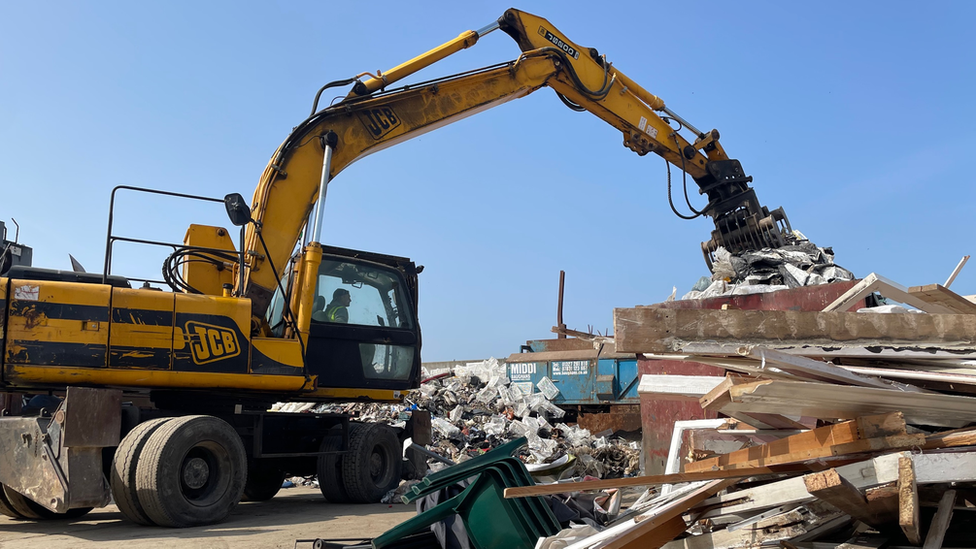
The government hopes new restrictions on the use of red diesel will encourage firms to be greener
On 1 April new rules restricting the use of red diesel come into force. What will it mean for companies who said the changes would cost them thousands of pounds?
Rebated diesel, known as red diesel, is just like standard or white diesel but is dyed red to make it easily identifiable because it is taxed at a much lower rate. It's mostly illegal to use it on public roads.
From April the rebated fuel will no longer be permitted in many industries, external and white diesel will have to be used instead.
This means companies which currently use red diesel to fuel vehicles and equipment - including those in construction and recycling - will pay about 47p a litre more for their fuel.
HM Revenue and Customs (HMRC) has said the new restrictions are designed to help meet "climate change and air quality targets".
It said the changes - announced in the 2020 budget - will help to encourage users of polluting fuels, such as diesel, to improve the energy efficiency of their vehicles and machinery, invest in cleaner alternatives, or just use less fuel.
The Treasury said it will "help to ensure fairness between different users of diesel fuels".
It added that red diesel accounts for nearly 14 million tonnes of carbon dioxide emissions every year and its reforms will mean that "many organisations will instead need to use diesel taxed at the same rate as that used by ordinary motorists, helping us to move to net-zero by 2050".
"We gave businesses a year to prepare for this change, and the farming and fishing industries are protected from these changes," a spokesman said.
"But we recognise too that there are unique circumstances currently pushing up fuel prices, which is why last week we cut fuel duty rates by 5p for the next 12 months."
The companies, who have already been hit by the rising cost of fuel, say it will just lead to a further increase in prices and make their industries less cost effective.

'The alternative almost is that we shut the gate'
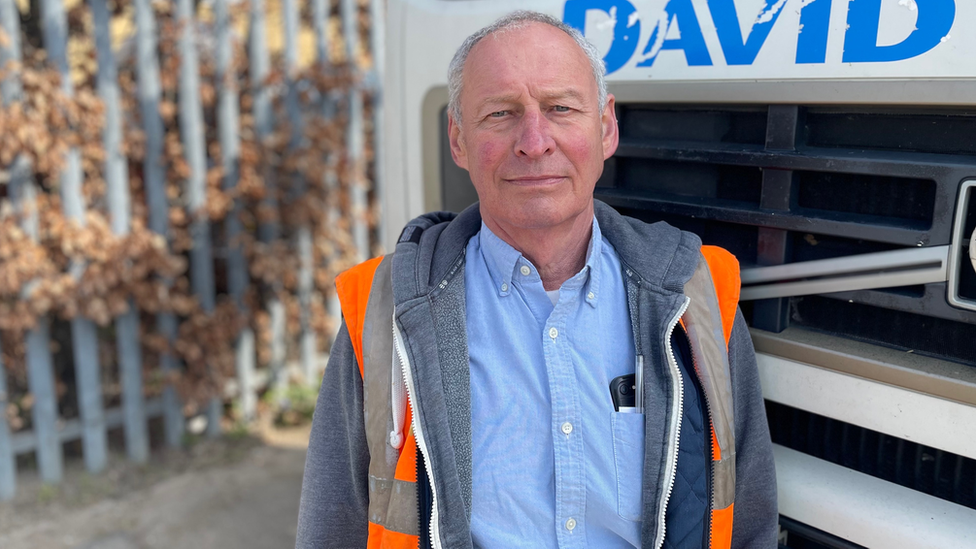
David Brown owner of David Brown Skip Hire & Recycling says the changes are "crippling" for his business
David Brown, from David Brown Skip Hire and Recycling in Harlow says the changes are "crippling" and are a "direct tax" on companies who now have to change the fuel they use,
He says it will cost his company an extra £18,000 - £20,000 a year.
The machine they use to sort waste runs on red diesel and uses about 140-150 litres per day.
"It will affect business drastically, because we have already had to increase our prices after Covid... we're running on a margin that's very tight," he says.
"It's also going to increase fly-tipping because people can't afford to use our services."
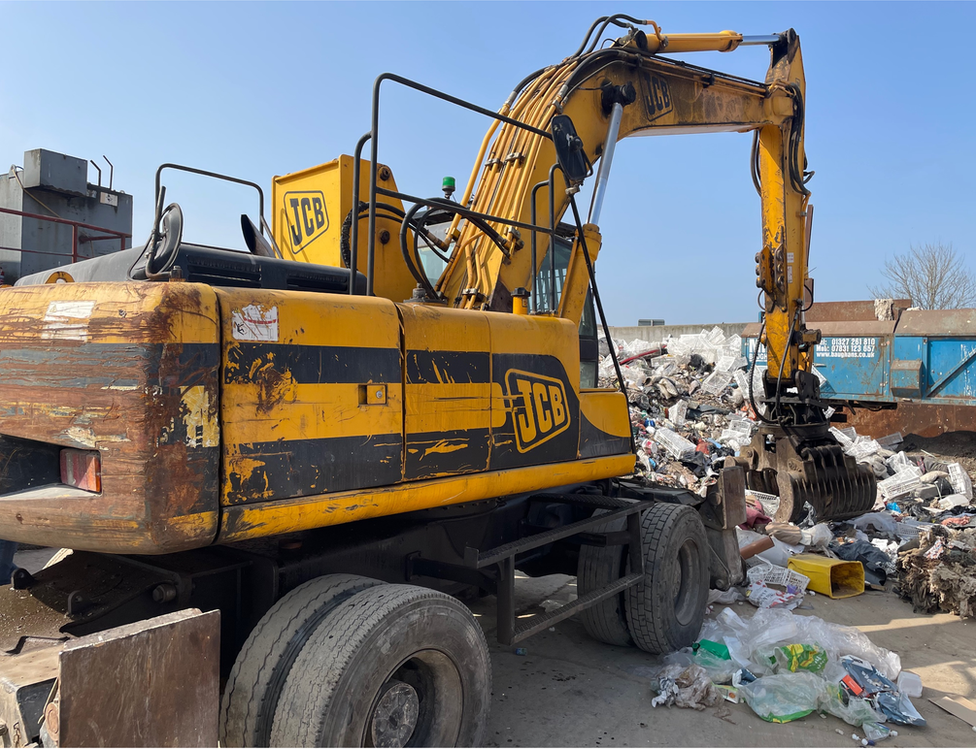
David Brown says there is not an electric version of the machine they use to sort waste
Mr Brown says there is not an electric version of the machine and even there was, the cost would probably be prohibitive.
"We accept the way that fuel has gone up and that's not controllable by the government," he says, "but this is controllable by the government and is a direct tax on us to make us less economical than we already are.
"We can't replace any new machinery or anything like that, not the way things are going, because it's taking all the profit out of our business.
"The alternative almost is that we shut the gate because we're not making money."
Mr Brown said he wants the chancellor to "rescind [the restrictions] straight away".
"It's a ridiculous thing to do to us," he says.
"I understand things have to be paid for - we're coming out of lockdown... it's not going to be a five-minute fix, we accept that, it's going to be years to get back to where we were with the amount of money that lockdown has cost, so I'm not unsympathetic to the problems. But I think there are ways to go about it and this isn't one of them."

'We're seriously thinking about our viability'

Jan Boruch said his company had already had to put prices up before next month's change
"It's going to cost us well over £100,000 extra per year," Jan Boruch from Hertfordshire wood recycling company Janbor Limited said.
Mr Boruch says his company uses about 1,000-1,100 litres (220-242 gallons) of red diesel a day at their Furneux Pelham plant and with fuel prices having risen the company has already had to put its prices up by between 10% and 35%.
"It's a two-pronged impact," he says.
"We've had the cost of diesel going up by nearly 100% in a year and now another 50% with the duty change so it's having a massive impact on us and our customers as we're having to charge more money.
"We can only cope by putting our prices up which is making recycling less cost effective than it was before.
"It's almost getting to the point where it might well be more viable for my customers to send their products to landfill rather than have them recycled.
"I think recycling should be exempt because we're producing renewable energy... surely that should be supported, not penalised."
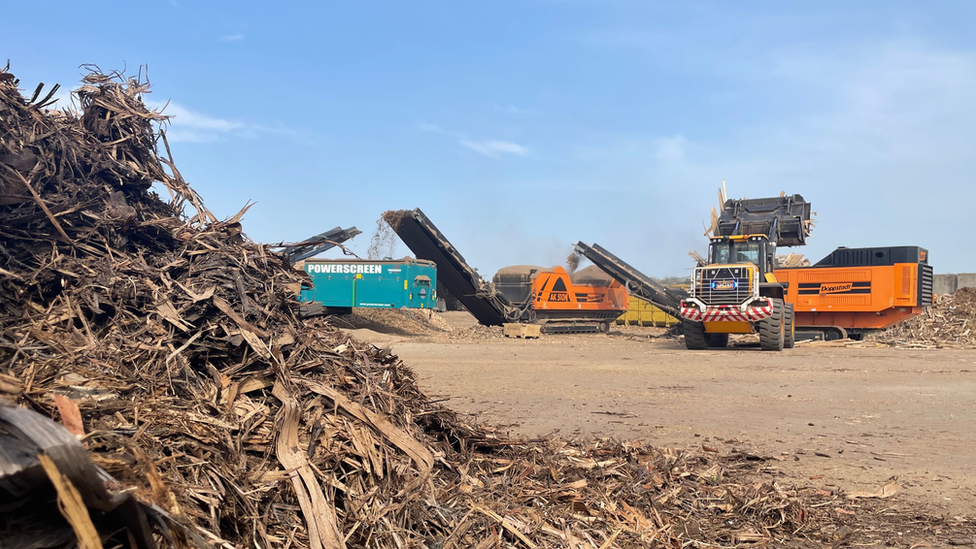
Jan Boruch says the move to white diesel will cost "well over £100,000 extra per year"
He adds that there is no greener alternative for the company at the moment because even if there was an electricity supplier in the area, it would cost about £1m for them to upgrade.
"We're seriously thinking about our viability," he says, "we're looking at stopping the log side of our business because it uses more energy than the palette side of the business.
"[The government] are trying to move too quickly and not looking at the bigger picture of waste management, recycling and the environment."

'It's really shocking and worrying'
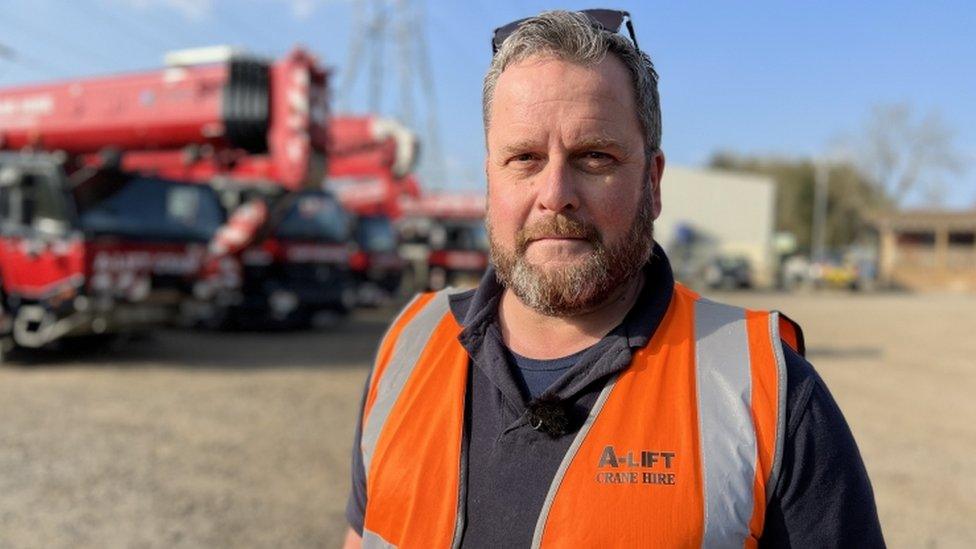
David Robson from A-Lift crane company in Wellingborough also has concerns about security
David Robson, managing director of A-Lift crane company in Wellingborough, says that moving to white diesel will have a "massive impact" on his company.
In October it cost the Northamptonshire company between £3,500 and £4,000 to fill a tank - but recently it cost £15,000.
"Already the cost of red diesel has doubled in the last six weeks with the Ukraine crisis going on, on the first of next month we're going onto white diesel where it will effectively double again," he says.
"That is really shocking and worrying for our company.
"The main impact will be the price and sadly we're going to have to pass it down the chain on to our customers.
"My other concern is having white diesel on site... it is vulnerable and will open up avenues for theft. It's a very worrying factor.
"I think the government could help us out, either giving us a stay for another year or keep us on red [diesel] and put the tax up on the fuel itself - that will maybe save diesel getting stolen."
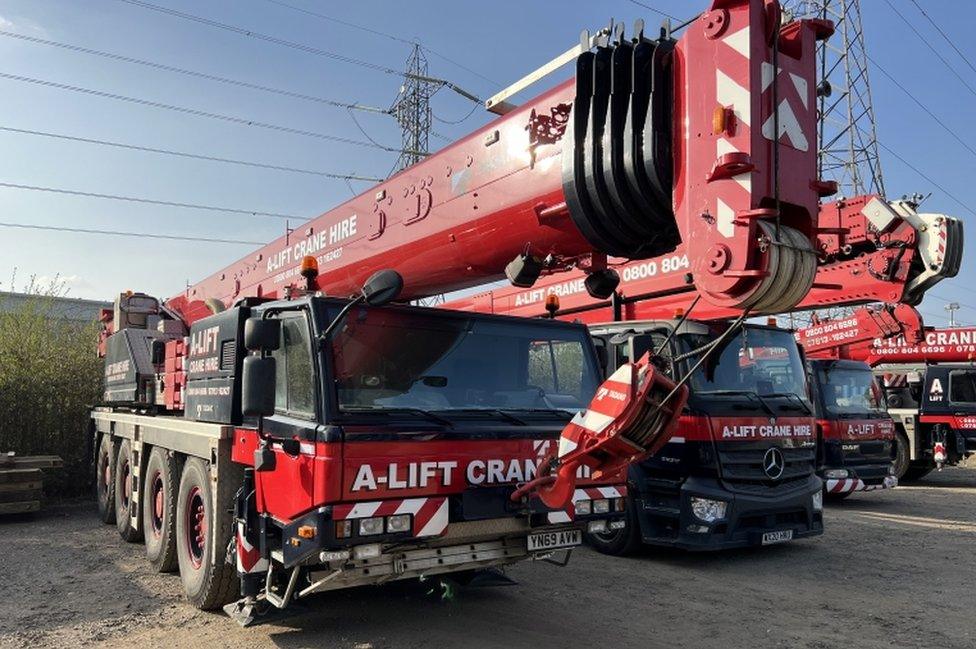
David Robson says it is not sustainable to run his vehicles on battery power
He adds that while "we'd all love a greener planet and that's definitely the way to go forward" it was not possible for his company to change his vehicles at the moment.
"Some of the vehicles are so big and heavy it's just not sustainable to run [them] on battery power," he says.

Find BBC News: East of England on Facebook, external, Instagram, external and Twitter, external. If you have a story suggestion email eastofenglandnews@bbc.co.uk, external
Related topics
- Published29 January 2022
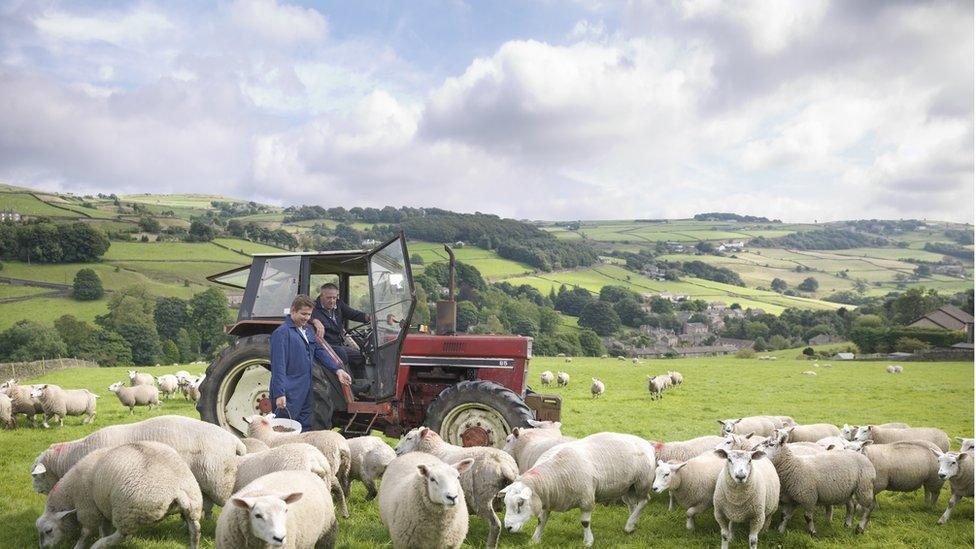
- Published22 January 2022
